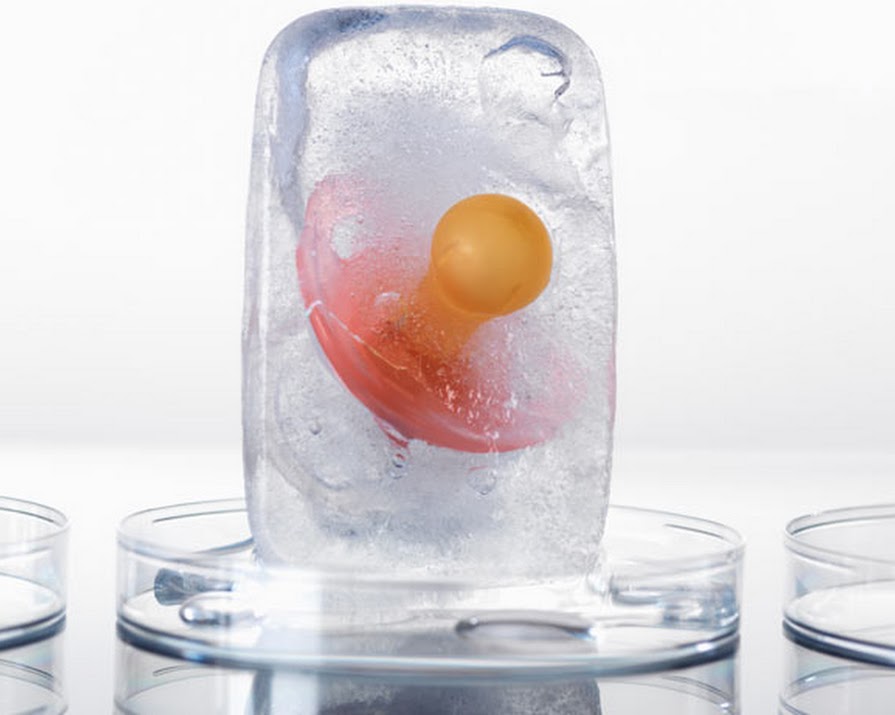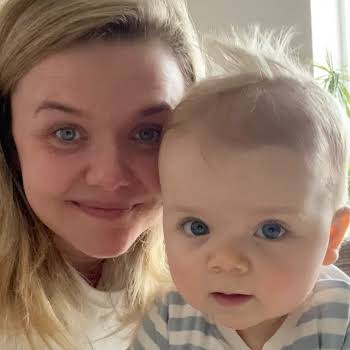
By Amanda Cassidy
28th Jun 2019
28th Jun 2019
It’s billed as an insurance policy against a childless future for those who don’t wish to climb down off their career ladder just yet, or those who are holding out for Mr Right, but Amanda Cassidy wonders if the realities of social egg freezing have been slightly misconstrued.
Once viewed as an option for the hard-headed businesswoman who wants to shush the tick-tock of her biological clock while also ensuring against future age-related infertility, now ‘social’ egg freezing has been increasing among younger woman as a way of buying more time and preserving their fertility rather than postponing it. But is this ‘miracle’ technology all it is cracked up to be or is there a gap in the knowledge of the actual procedure and its limits?
The process
According to the Beacon Fertility clinic in Dublin, the vitrification technique is used to freeze eggs. “Vitrification literally means ‘turning to glass’. The eggs are first dehydrated to remove as much water as possible. Then, after being bathed in a protective solution, they are plunged rapidly into liquid nitrogen at almost -200°C. This step is performed so quickly that prevents ice formation and results in a glass-like state.
Related: Why we need to talk more openly about fertility
Around 95% of eggs undergoing this super-fast freezing technique survive the freeze-thaw process and a high proportion of these are capable of undergoing ICSI (where a sperm is injected into the egg to fertilise).Egg freezing is often performed for medical reasons, such as before some cancer therapies. The common reason for freezing eggs in many fertility clinics is for donation to another woman or for fertility preservation for personal, as opposed to medical reasons.
Embryologist Alison Campbell says it is increasingly popular. “Firstly we will assess your needs and suitability for the procedure, as it is essential that you understand the likelihood of your eggs being of good quality and the processes involved. Next, you take medication in order to encourage your ovaries to produce several eggs. Then we perform the egg recovery, which takes about 20 minutes, and the freezing. The eggs are then stored for up to 10 years. If you are undergoing EGGsafe®, we will repeat until we have obtained 20 mature eggs, with a limit of 4 procedures”.
We speak to Myra who is about to undergo a consultation at the Beacon Fertility unit. “I felt like I should do something, I’m 38 and haven’t met anyone special yet so I want to make sure I have more options when it comes to my future fertility. She says she was surprised when she initially looked into the invasive nature of the procedure.
“For me, I see it as a long-term investment”
Pros and cons
Freezing your eggs involves two weeks of injections that stimulate ovulation, scans, blood tests and sedation while the eggs are harvested. The eggs that are retrieved are flash frozen to avoid any damage. Around 10% of those eggs are unlikely to survive the thawing process. And then there is the cost – around €3,000 for the cycle and then around €300 a year to store the frozen eggs.
“For me, I see it as a long-term investment. I know that by the time women reach my age, around one in four of us will experience problems with fertility. I am also aware that if I meet someone in the coming months or years, I’d like to try and have children naturally so perhaps I will have no need to use my frozen eggs. But maybe I will, and that’s why I am here today.”
We interviewed Dr Bart Kuczera from the Beacon Fertility Clinic. He says often women come in too late, some in their early 40’s, and at that stage, there is a lot of natural and unpreventable damage due to the ageing process.
Quality over quantity
“The important thing in all these cases is quality rather than quantity, but some women will require more than one cycle of ovary stimulation. If their ovarian reserve is very low it could even take three or four cycles to collect enough eggs to freeze. Obviously, you don’t know how these eggs will fare once you try to thaw them out or turn them into embryos. Ideally, we would see younger women coming in to preserve their fertility.”
So why don’t they?
“I think we are all guilty of underestimating our fertility decline”
Dr Kuczera believes that many younger women are put off when the invasive nature of the process is described. You also have to stop contraception for a while, and then there is the optimism of youth that wants to believe that fertility lasts forever.
“I always say it should be a graduation present. We would love to see younger women coming to freeze their eggs as insurance for their future fertility. Because that’s what it is, an insurance policy in case you have issues with fertility. Our typical clientele are single women around 37 or 38 years old who are coming to the end of their natural fertility but who hope to have a family someday.”
The reaction
So is freezing your eggs the ultimate female empowerment, or is it a deeply private decision that brings sadness as much as hope? Myra believes for her it is a little bit of both;
“I think we are all guilty of underestimating our fertility decline and are too quick to overestimate the success of these ‘miracle’ technologies that can help achieve that dream of a baby…when we are ready, willing and able. It is a wonderful option to have but I do wish that I’d had some better information when I was younger when it came to the limits to the procedure and the limits in relation to my own biology.
We all see the celebrities popping out babies in their 40s so we imagine we can all do the same. The reality is that embarking on freezing your eggs is a younger woman’s game and I’d hate to think people would see it as a reason not to try for children earlier.”
Myra says it is interesting to hear the reaction of others when she talks about freezing her eggs.
“A lot of my mum’s generation view me as a hard-headed career woman who is happy to shell out a fortune to delay my biological clock. The reality is that I want to pursue motherhood at the right time, in the right way and with the right person. I don’t see anything wrong with that.”
Image via Unsplash.com
Read More: How acupuncture can improve your fertility
Read More: The reality of ten years of IVF
Read More: Why is male fertility declining?






















